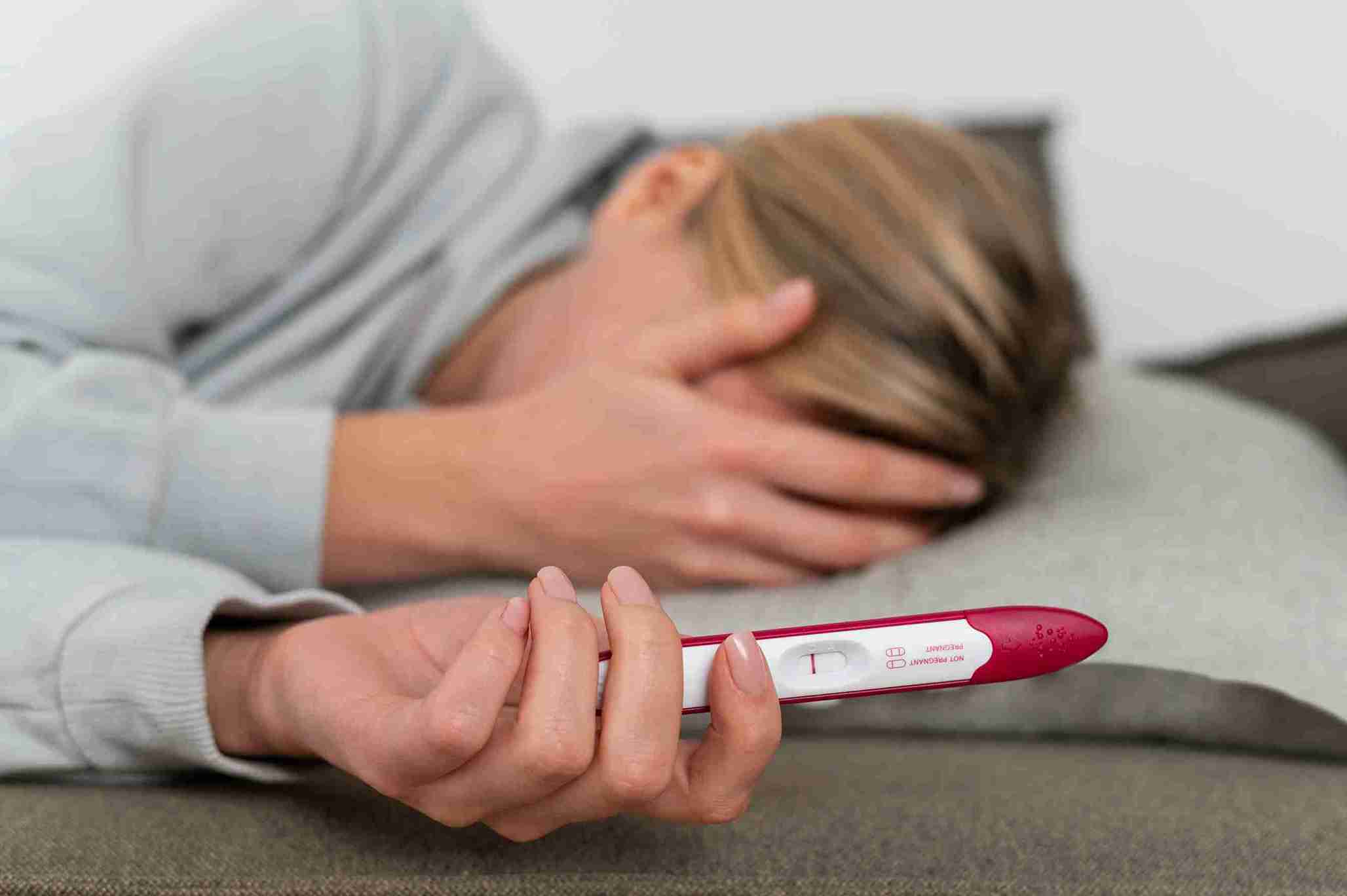
Polycystic Ovary Syndrome (PCOS) is a common yet complex hormonal condition that affects millions of women worldwide. Their physical health, emotional well-being, and fertility are impacted by this disorder. Now, here is a fact that not many are aware of: At the heart of PCOS lies a delicate hormonal interplay known as the Hypothalamic-Pituitary-Ovarian (HPO) axis. This is an intricate system that regulates the menstrual cycle and ovulation. Any disruption to this interconnected system can lead to symptoms associated with PCOS. Thus, understanding the connection between the HPO axis and PCOS is key to uncovering the root causes of the condition and exploring effective, compassionate approaches to care.

In this article, we shed some light on how the HPO axis is linked to PCOS.
In Polycystic Ovary Syndrome, hormones play a huge role. PCOS is a disorder that occurs in women due to hormonal imbalances. This happens when the ovaries end up generating abnormally high levels of sex hormones called androgens, thus leading to a condition known as hyperandrogenism. PCOS could also be caused by insulin resistance, whereby the body cannot process insulin correctly. This, too, could lead to an increase in the level of androgen hormones in the body.
A polycystic ovary is a typical feature of this disorder. The ovaries of women suffering from PCOS will have small sacs of fluid called cysts growing along the outer edges. These cysts often have follicles that contain immature eggs. Ovulation and fertility are severely impacted because the follicle fails to release the eggs on a regular basis. If left untreated, PCOS could lead to other health issues like heart disease or diabetes.

Understanding the complex interplay between PCOS and ovulation is crucial for women trying to conceive, as irregular or absent ovulation (also known as anovulation) is a common characteristic of the condition. Here are some of the symptoms that women should look out for that signal the possibility of PCOS:
● Irregular menstrual cycles: Women with PCOS may experience irregular or missed periods or even abnormally heavy menstrual bleeding.
● Hirsutism: Abnormal or excessive hair growth, especially on the face, chest, abdomen or arms, may also indicate PCOS.
● Acne: Excessive androgen levels can cause acne, especially on the face, back, and chest.
● Obesity: Most women with PCOS often exhibit abnormal weight gain and are unable to maintain optimal weight.
● Hair and Skin Issues: Hair loss and skin tags are issues that women with PCOS may face.
● Fertility Issues: Due to the presence of polycystic ovaries, the follicles are unable to regularly release eggs during ovulation. This impacts fertility, and women with PCOS may find it difficult to conceive a child.
The hypothalamic-pituitary-ovarian axis (also generally known as the hypothalamic-pituitary-gonadal axis) is a complex system made up of endocrine glands whose functions are interconnected to one another. The HPO axis is made up of:
1. Hypothalamus: Creates the Gonadotropin-releasing hormone (GnRH) that regulates the reproductive system.
2. Pituitary: Creates Luteinising hormone (LH) and Follicle-stimulating hormone (FSH), both of which play important roles during ovulation.
3. Ovary: Produces and stores ovum or eggs and creates hormones that regulate the menstrual cycle. Eggs are released from one of the ovaries during ovulation.

The HPO axis has a vital role in the development and regulation of the reproductive system. The HPO axis helps control the main female reproductive hormones: estrogen and progesterone. When a girl reaches puberty, the hypothalamus releases a hormone called GnRH. This triggers the pituitary gland to release two more hormones—LH and FSH. These hormones travel to the ovaries and signal them to produce estrogen and progesterone. These hormones rise and fall during the menstrual cycle, creating two main phases: the follicular phase (when estrogen is low) and the luteal phase (when estrogen is high). These phases are separated by ovulation and end in pregnancy or a period in women with regular cycles.
As stated earlier, an abnormally high level of hormones, such as androgen, is a typical feature of PCOS. One key factor behind this imbalance is dysfunction within the hypothalamic-pituitary-ovarian (HPO) axis, the system that is responsible for regulating female reproductive hormones.
Unfortunately, in women suffering from PCOS, the HPO axis does not function as it normally should. The hormone GnRH, which is usually released in pulses, becomes irregular, causing the pituitary gland to release more LH. This rise in LH leads to higher levels of androgen hormones like testosterone and androstenedione. These hormone imbalances prevent normal growth and release of the eggs stored in the ovaries. As a result, the ovaries fill with many small follicles that don’t mature, which can make the ovaries larger and slightly raise estrogen levels. This consequently leads to PCOS.

HPO axis dysfunction in PCOS is an issue that needs to be explored deeply, especially when dealing with fertility issues. Early intervention could help in resolving problems with the menstrual cycle and ovulation, which in turn could potentially help in the successful conception of a baby.

PCOS is caused by hormonal imbalances, which in turn lead to the development of polycystic ovaries. In other words, small fluid-filled sacs called cysts will be formed along the outer edges of the ovaries. These cysts contain follicles that contain immature eggs. Because of hormonal imbalances, the follicles will fail to release the egg on time. This impacts ovulation and the menstrual cycle.

The HPO axis plays a crucial role in regulating the female reproductive system. Any dysfunction in the HPO axis could have far-reaching outcomes, and one such issue could be PCOS. Some of the common symptoms that could be noticed in such situations are irregular or missed periods, formation of ovarian cysts that trigger excess levels of sex hormones like androgen, and abnormal levels of hormones like Gonadotropin-releasing hormone (GnRH), Luteinising hormone (LH) and Follicle-stimulating hormone (FSH).

Insulin resistance is a condition in which the body cannot process insulin correctly, and if left untreated, it could impact the HPO axis and PCOS. Over time, insulin resistance could lead to increased androgen production in the ovaries, which in turn could result in PCOS.
